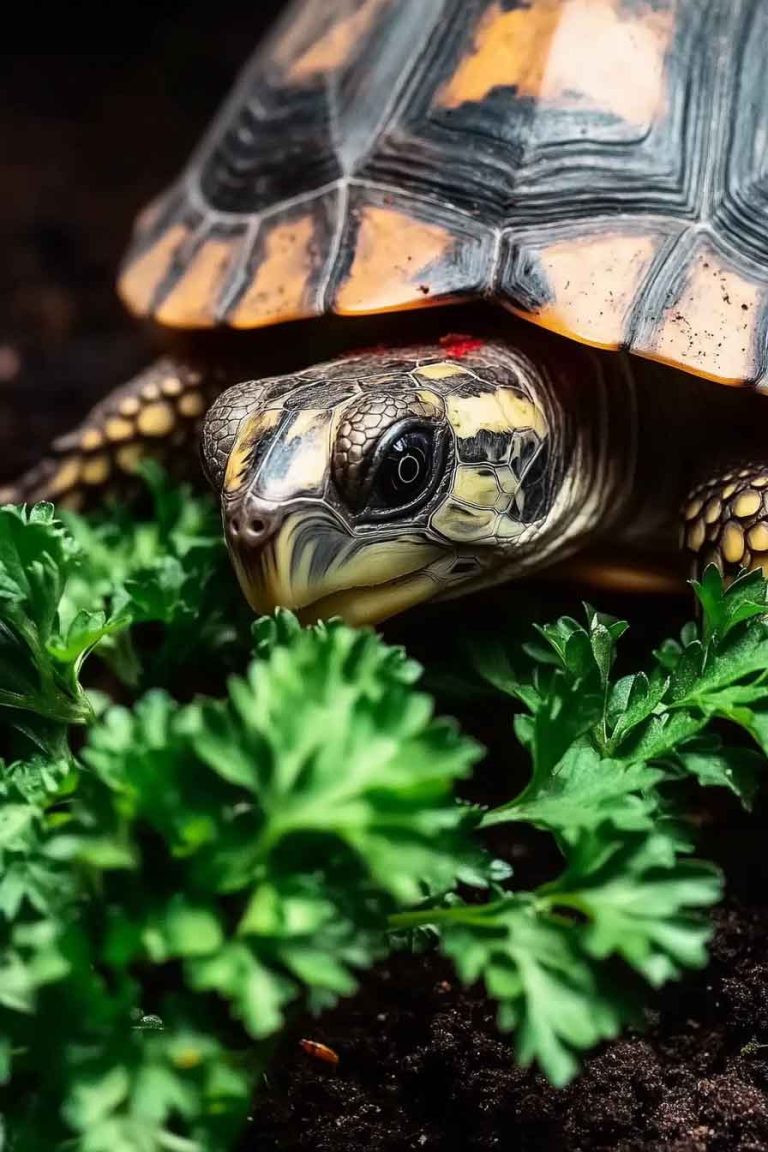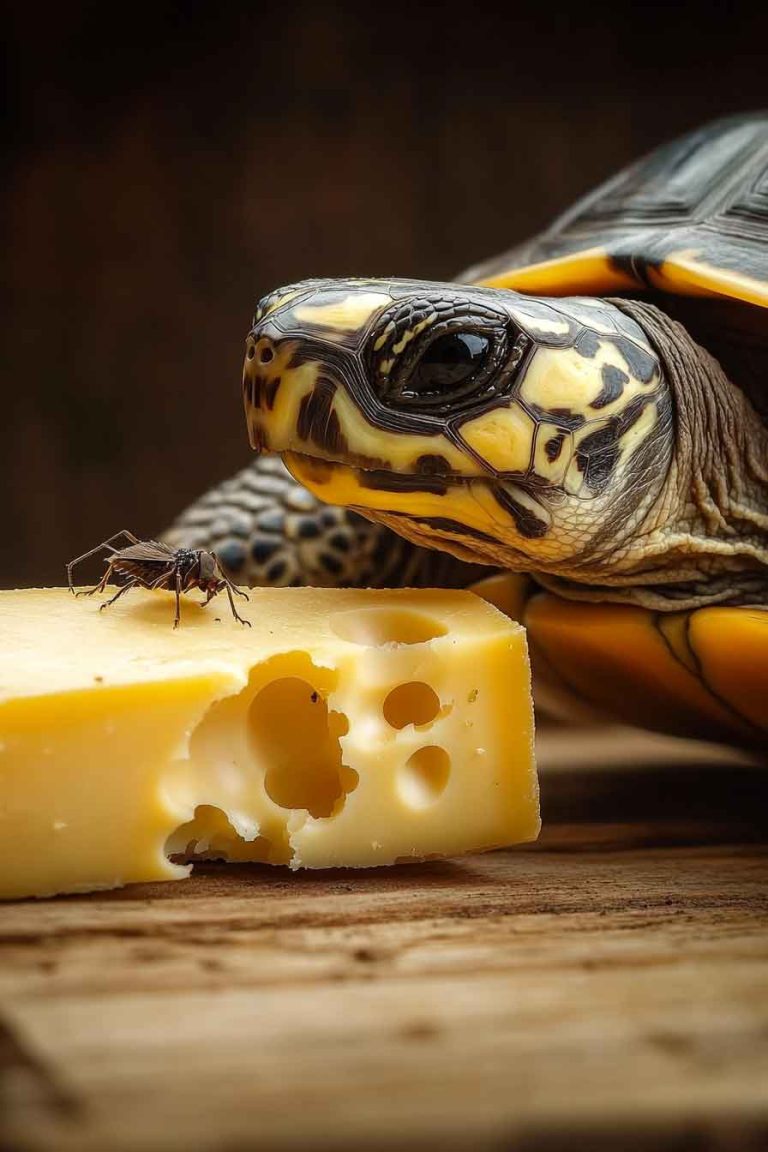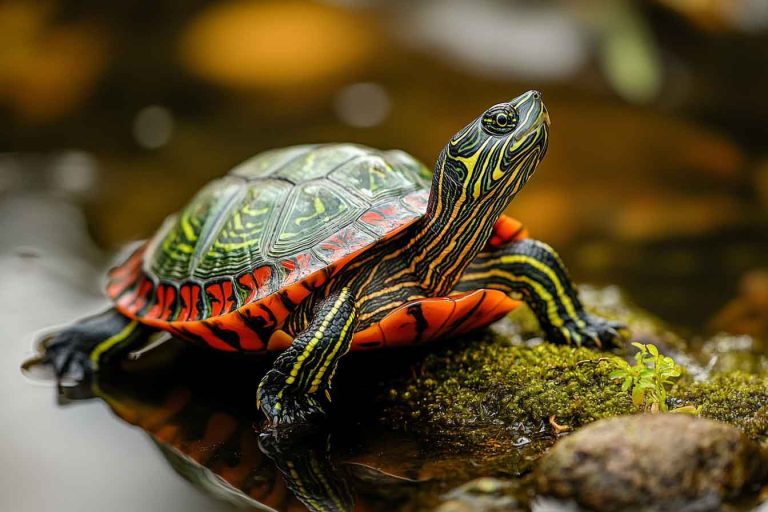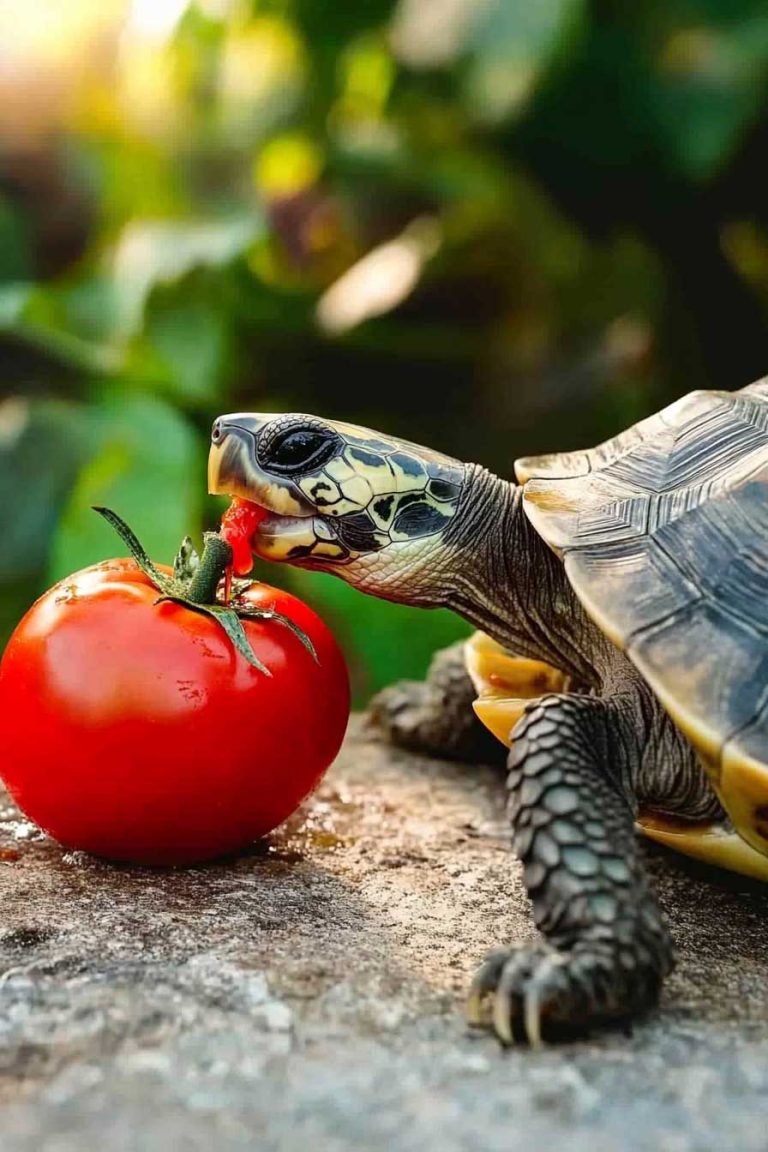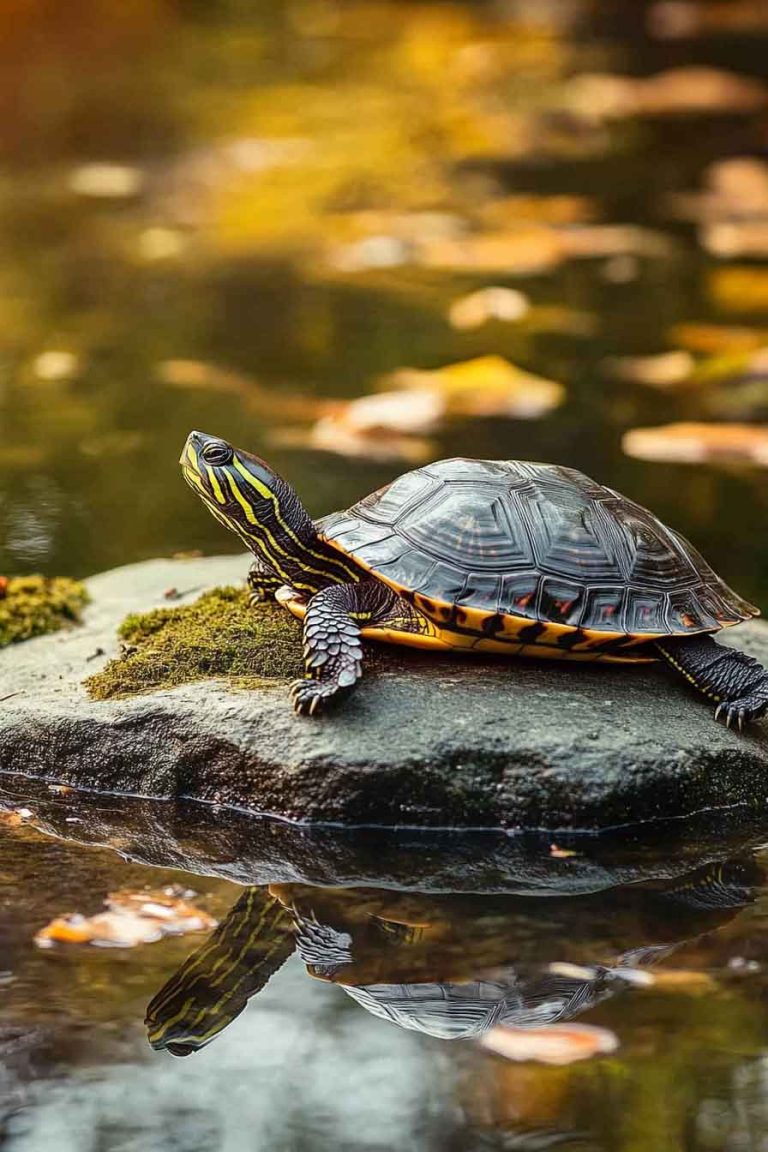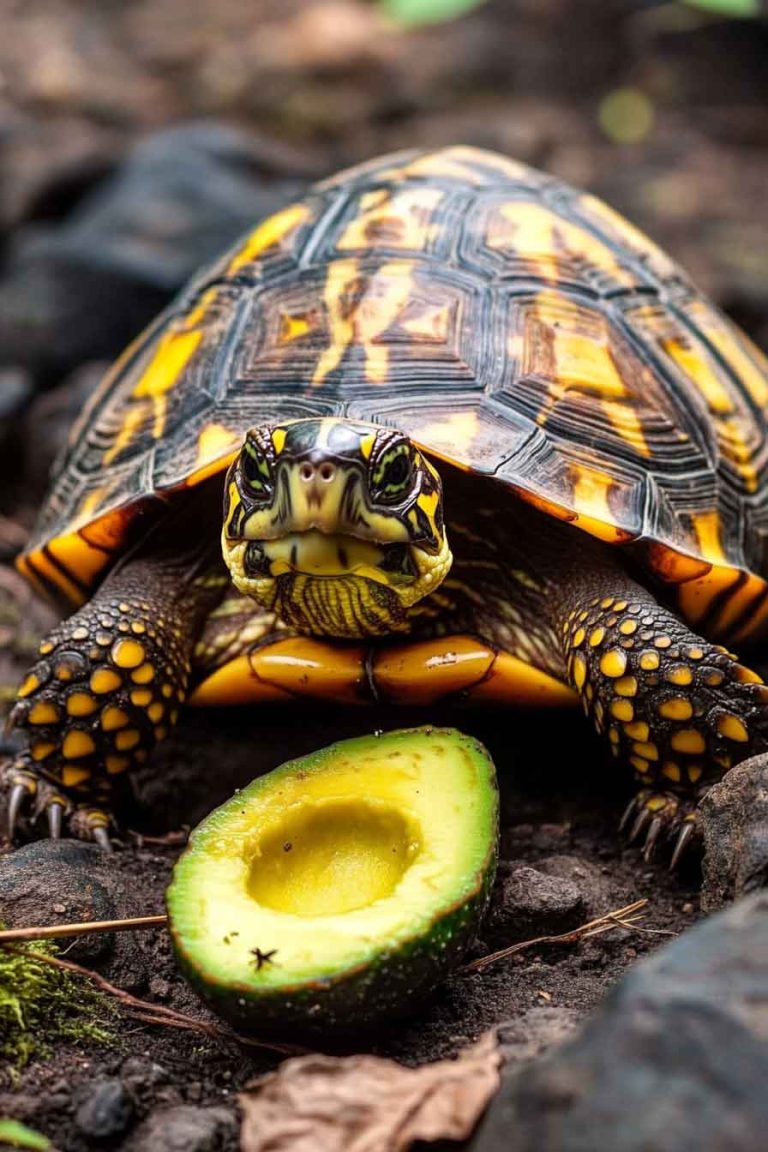Can Pet Turtles Eat Blueberries? Risks & Benefits Inside
If you have a pet turtle like me, I bet you’ve wanted to share your favorite snacks with your shelled friend. I know I have! When I’m eating my morning blueberries, my turtle always looks at me like he wants some too. But can I give him blueberries safely? So, can turtles eat blueberries? Yes,…
If you have a pet turtle like me, I bet you’ve wanted to share your favorite snacks with your shelled friend. I know I have! When I’m eating my morning blueberries, my turtle always looks at me like he wants some too. But can I give him blueberries safely?
So, can turtles eat blueberries? Yes, turtles can eat blueberries! These little blue fruits are safe and healthy for most turtles when given in small amounts. Blueberries have good vitamins and are not toxic like some other foods. However, you should only give blueberries as a special treat, not as their main food.
In this article, I’m going to tell you everything I learned about feeding blueberries to turtles. I’ll share what makes them good, how much to give, and what to watch out for. Keep reading if you want to learn more about this yummy treat for your turtle!
Can You Feed Blueberries To Your Pet Turtle?
The short answer is – yes, you can! Unlike some fruits that are bad for turtles, blueberries are actually a safe treat. I was so happy when I found out because my turtle seemed to really want to try them.
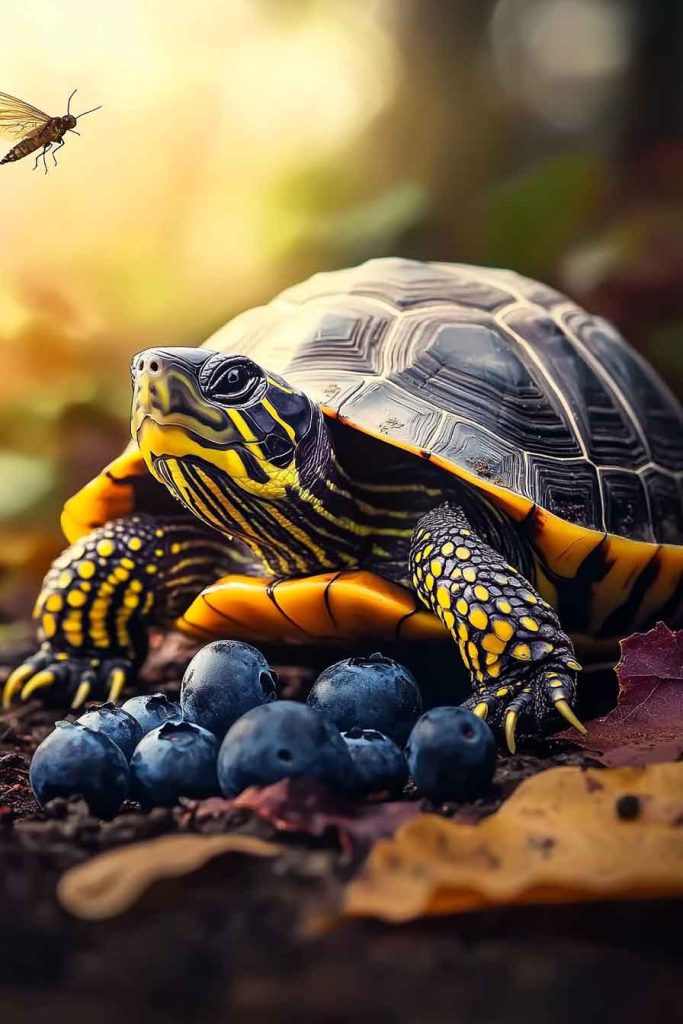
Blueberries are different from toxic foods like onions or chocolate. They don’t have harmful chemicals that can hurt your turtle. Instead, they have vitamins and minerals that can be good for your pet.
Let me show you what’s inside 100 grams of fresh blueberries:
- Carbohydrates: 14.49 g
- Sugar: 9.96 g
- Protein: 0.74 g
- Calcium: 6 mg
- Phosphorus: 12 mg
- Vitamin C: 9.7 mg
- Vitamin K: 19.3 mcg
- Potassium: 77 mg
- Magnesium: 6 mg
- Iron: 0.28 mg
Looking at this list, I can see why blueberries are okay for turtles. They have some good vitamins, but they also have sugar. This is why we need to be careful about how many we give.
The calcium to phosphorus ratio in blueberries is about 1:2, which isn’t perfect. Turtles need more calcium than phosphorus in their diet. But since blueberries are just a treat and not their main food, this isn’t a big problem.
Do Turtles Like Blueberries?
Most turtles really like blueberries! I’ve watched my turtle eat them, and he seems to enjoy the sweet taste. The soft texture is easy for turtles to bite and swallow too.
When I first gave my turtle a blueberry, he was curious about the round blue shape. After trying it, he definitely wanted more! But remember, just because your turtle likes something doesn’t mean you should give lots of it.
Some turtles might not like blueberries at first. That’s okay! Every turtle is different, just like people have different favorite foods.
Health Benefits of Blueberries for Turtles
Blueberries have some really good things that can help your turtle stay healthy:
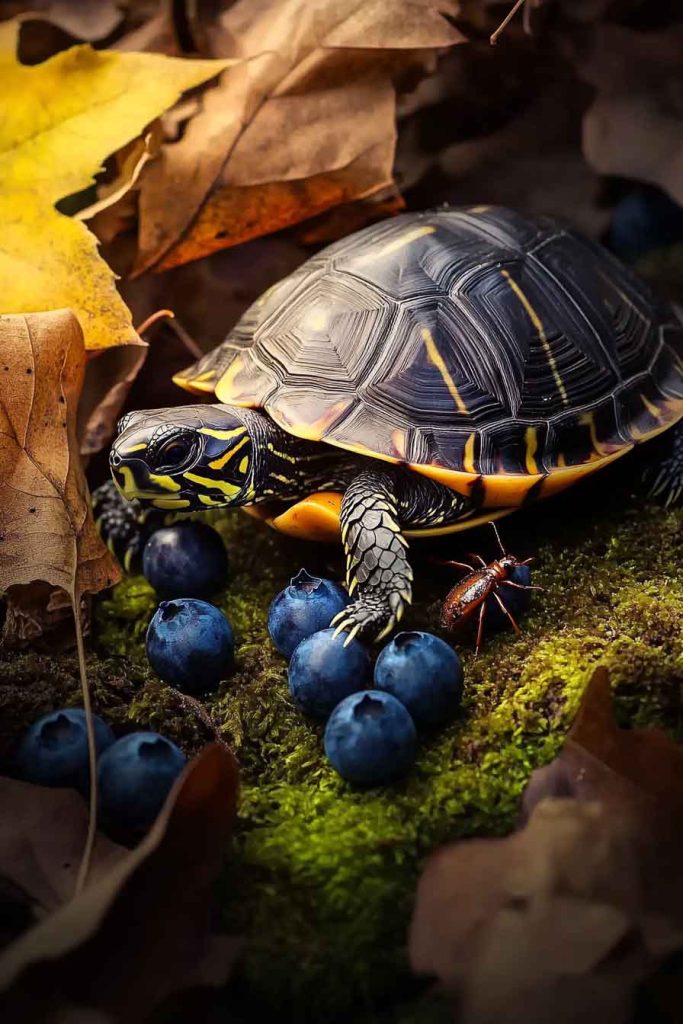
Antioxidants Blueberries are full of antioxidants. These help protect your turtle’s body from damage. Think of antioxidants like tiny shields that fight off bad things in the body.
Vitamin C This vitamin helps your turtle’s immune system stay strong. A strong immune system means your turtle won’t get sick as easily.
Vitamin K This vitamin is important for healthy blood. It helps cuts heal better if your turtle gets a small scratch.
Fiber Blueberries have fiber that can help with digestion. This means the food moves through your turtle’s tummy better.
Low Fat Unlike some treats, blueberries don’t have much fat. This is good because too much fat can make turtles sick.
Are There Any Risks of Feeding Blueberries to Turtles?
Even though blueberries are safe, there are some things to watch out for:
Too Much Sugar Blueberries have natural sugar in them. If you give your turtle too many, they might get an upset stomach. Sugar can also make turtles gain too much weight.
Diarrhea If your turtle eats too many blueberries at once, they might get loose poop. This can make them dehydrated, which is dangerous.
Calcium Problems Remember how blueberries have more phosphorus than calcium? If you give too many blueberries and not enough calcium-rich foods, your turtle could have weak bones and shell.
Pesticides If you buy blueberries from the store, they might have chemicals on them. Always wash blueberries really well before giving them to your turtle. I like to buy organic blueberries when I can.
How Much Blueberries Should Turtles Eat?
This is a very important question! I learned that treats like blueberries should only be 10% of what your turtle eats. The other 90% should be their regular turtle food, vegetables, and protein.
Here’s what I do for my turtle:
- Small turtles (under 4 inches): 1-2 blueberries per week
- Medium turtles (4-8 inches): 2-3 blueberries per week
- Large turtles (over 8 inches): 3-4 blueberries per week
I don’t give blueberries every day. Instead, I give them 1-2 times per week as a special treat. This keeps my turtle excited about them and prevents any health problems.
Can You Feed Blueberries to Baby Turtles?
You need to be extra careful with baby turtles! Their little tummies are very sensitive, and they need special food to grow big and strong.
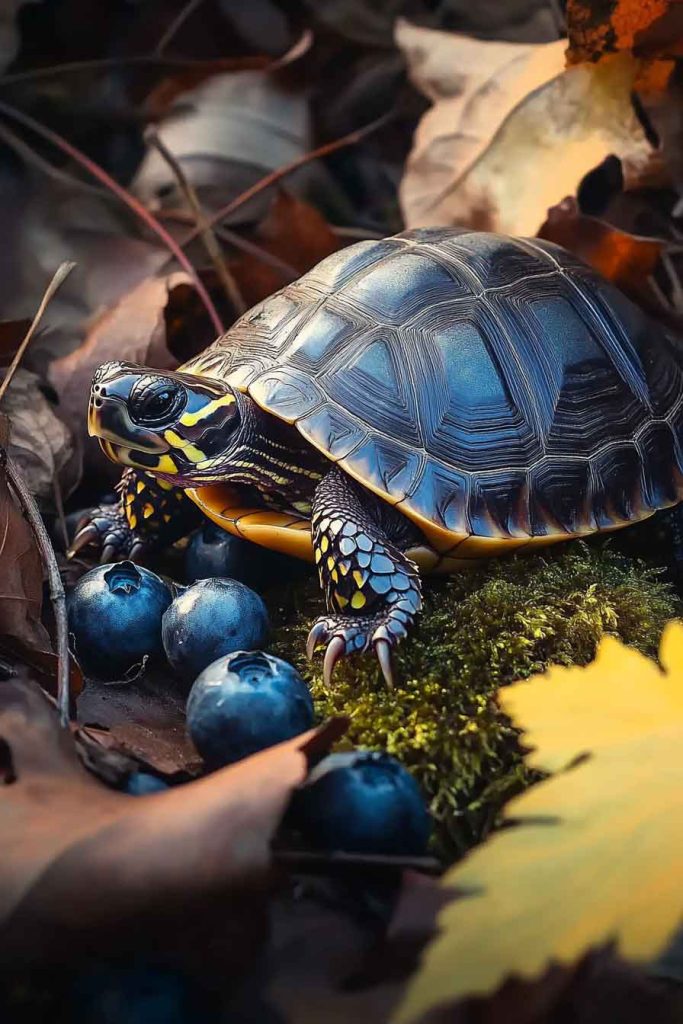
I would only give tiny pieces of blueberry to a baby turtle, and only if they’re older than 3 months. Even then, just a tiny piece once a week is enough. Baby turtles need mostly protein to grow, not sugary treats.
If you have a very young baby turtle, it’s better to wait until they’re bigger before trying blueberries. Ask your vet if you’re not sure!
How to Prepare Blueberries for Your Turtle
Here’s how I prepare blueberries for my turtle:
- Wash them really well – I use cool water and rub each berry to remove any dirt or chemicals
- Check for bad spots – I throw away any blueberries that are mushy or have white spots
- Cut large berries – If the blueberries are big, I cut them in half so my turtle won’t choke
- Remove stems – Make sure there are no green stems attached
- Serve at room temperature – I don’t give cold blueberries straight from the fridge
Different Types of Turtles and Blueberries
Let me tell you about different turtle types and blueberries:
Box Turtles Box turtles are omnivores, which means they eat both plants and meat. They can definitely have blueberries! In the wild, box turtles sometimes find berries to eat.
Red-Eared Slider Turtles
These water turtles can also have blueberries. But remember, they need more protein than plant foods, especially when they’re young.
Painted Turtles Painted turtles are like red-eared sliders. They can have blueberries as treats, but their main food should be turtle pellets and protein.
Russian Tortoises These land turtles eat mostly plants. They can have blueberries, but they prefer leafy greens and vegetables.
Signs Your Turtle Ate Too Many Blueberries
Watch your turtle after giving blueberries. If you see these signs, you gave too many:
- Loose or watery poop
- Not wanting to eat regular food
- Acting tired or sleepy
- Purple poop (from the blueberry color)
If you see these signs, don’t give any more blueberries for a week. Give lots of fresh water and their regular food. If your turtle seems very sick, call your vet.
Other Safe Fruits for Turtles
If your turtle likes blueberries, they might like these other safe fruits too:
- Strawberries (without the green top)
- Cantaloupe
- Watermelon (seedless)
- Apples (no seeds)
- Bananas (small pieces)
- Grapes (cut in half)
Remember, all fruits should be treats, not main meals!
Fruits to Never Give Your Turtle
Some fruits are dangerous for turtles. Never give your turtle:
- Avocado (very toxic!)
- Cherries (the pits are poisonous)
- Citrus fruits like oranges or lemons (too acidic)
- Rhubarb (toxic)
- Any fruit with seeds or pits
Video of a Turtle Eating Blueberries
I love watching turtles eat blueberries! They usually bite the berry and some juice comes out. It’s really cute to see their little mouths turn purple!
You can find videos online of turtles enjoying blueberries. It shows that many turtle owners safely give this treat to their pets.
Frequently Asked Questions (FAQs)
Can I give frozen blueberries to my turtle? It’s better to give fresh blueberries. If you use frozen ones, let them thaw completely first. Frozen berries can be too cold for your turtle’s stomach.
What if my turtle won’t eat blueberries? That’s okay! Not all turtles like every food. Try offering other safe fruits or vegetables instead. Don’t force your turtle to eat anything.
Can I give dried blueberries? No, dried blueberries have too much sugar and might have added chemicals. Stick to fresh blueberries only.
Are wild blueberries better than store-bought? Wild blueberries are fine if you’re sure they’re clean and haven’t been sprayed with chemicals. But store-bought organic blueberries are usually safer.
Can my turtle eat blueberry leaves? It’s better to stick to just the berries. The leaves might have chemicals or could be hard to digest.
Conclusion
I’m so glad I learned that blueberries are safe for turtles! Now I can share this healthy treat with my shelled friend. Just remember the important points:
- Blueberries are safe and healthy for turtles
- Only give them as treats, not main meals
- Wash them well and give small amounts
- Watch your turtle for any problems
- Ask your vet if you have questions
Your turtle can enjoy blueberries just like you do! It’s one of the safe fruits that makes a great special treat. I hope this article helped you learn everything you need to know about turtles and blueberries. Your turtle will thank you for the delicious and healthy snack!


